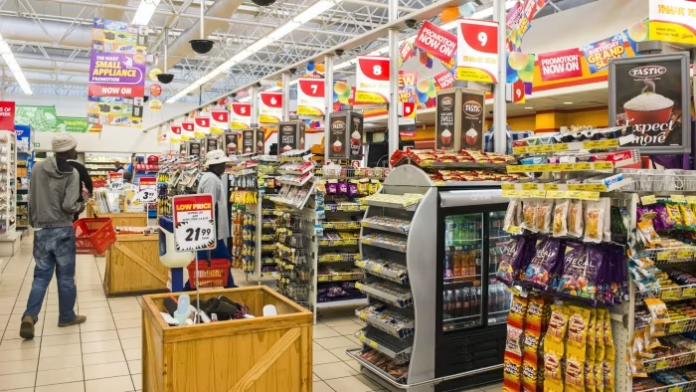Shoprite, South Africa’s biggest grocery retailer, is closing down its operations in Ghana and Malawi as part of a broader strategy that has seen the retailer exit several African countries to focus on its home market.
The group once had ambitions to dominate food retail across the continent. It expanded into about 15 countries, beating rivals such as Pick n Pay and Walmart-owned Massmart to become Africa’s largest supermarket operator.
However, many of these moves did not work out as planned. Shoprite’s stores outside South Africa faced serious challenges.
These challenges include weak currencies, high inflation, expensive import duties, and rent charged in US dollars. These factors made it difficult to operate profitably.
In Malawi, Shoprite’s exit marks the end of 25 years in the country. In June, the retailer signed a deal to sell its five stores, and last month the country’s Competition and Fair-Trading Commission approved the transaction.
However, the approval came with conditions. The buyer, Karson, must keep workers who choose to stay, pay proper benefits to those who leave, and report back every three months for two years to prove it is following the rules.
Karson will rename the stores as “Shopwise Trading Limited” and continue selling groceries, but there are doubts about whether it can keep jobs safe and run the stores effectively.
Malawi’s wider retail industry has also been under pressure. The sector is the country’s second-largest contributor to the economy.
However, it has been shrinking for years. Heavy reliance on imports and a constant shortage of foreign currency have made conditions even tougher for retailers.
In Ghana, Shoprite has also agreed to sell seven stores and one warehouse. The group described the sale as highly probable, which means another exit is almost certain.
These moves follow earlier withdrawals from Nigeria, Kenya, Uganda, Madagascar, and the Democratic Republic of Congo.
The retailer has also cut back on spending outside South Africa, choosing instead to invest more at home.
Massive expansion back home
The situation in South Africa is the complete opposite. While closing stores elsewhere, Shoprite is expanding strongly in its domestic market.
In the year ending June 2025, the group reported sales of more than R250 billion, an increase of R20.6 billion from the previous year.
Its core South African supermarkets, which include Shoprite and Usave, grew turnover by 5.9%, or R6.5 billion.
Checkers, which has been repositioned as a more premium but still affordable option, performed even better, with sales up 13.8%, adding R11.6 billion to the group’s revenues.
Checkers has been a big part of Shoprite’s success. It opened 68 new outlets in the past year, including 36 LiquorShop stores, and now has 350 supermarkets, of which 40 are large-format Hypers.
CEO Pieter Engelbrecht said Checkers’ “FreshX” store format, which focuses on fresh and higher-quality food, has helped it win customers.
“Our strategy to continue the conversion of existing stores to our winning FreshX format, whilst opening stores in areas where we are underrepresented, remains one of our top priorities,” he said in September.
Across its South African supermarkets, Shoprite added a net 225 new stores during the year, taking the total to 2,577.
For the year ahead, it plans to open another 223. Even though it sold its furniture business and exited Ghana and Malawi, the company still ended the financial year with more stores overall. Its total network grew to 3,908 outlets after a net increase of 269.
Source: Business Tech











